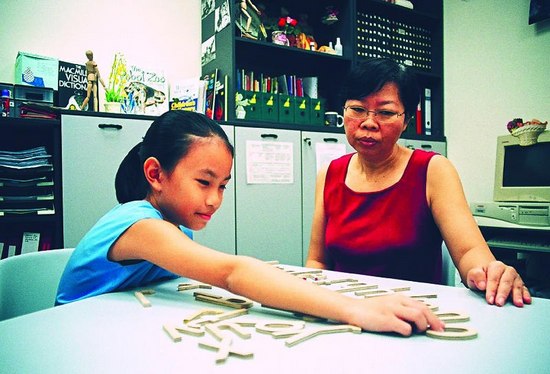The Dyslexia Association of Singapore (DAS) will expand its curriculum to include Chinese literacy.
The pilot programme, which will help children with dyslexia master basic Chinese literacy, is expected to begin from January 2013. Deputy Prime Minister Tharman Shanmugaratnam shared the plan at the association’s 21st anniversary Charity Gala Dinner on Saturday.
Besides Chinese, the association also included Mathematics as part of its literacy curriculum.
It will also increase psychological assessments, expand a preschool programme, add two new learning centres and a scholarship programme for outstanding dyslexic students.
Fund raising to roll out these initiatives started as early as January this year and the association has hit the S$1.3 million required.
Mr Tharman said there is a need to develop effective remedies to help children with dyslexia during their early learning years as the Ministry of Education moves efforts upstream.
He said the ministry has been supporting the association’s initiatives since 2005. He also said MOE provides DAS with an annual grant to fund their specialised re-mediation programme for these students, and there are fee subsidies available too.
“With the implementation of the revised Financial Assistance Scheme (FAS) for needy students who are enrolled at DAS learning centres, we have increased subsidies as well as doubled our reach to cover students from up to the 80th percentile of household incomes,” Mr Tharman said.
He added that MOE has increased the school’s capacity to support students with mild special needs, including dyslexia, autism and attention deficit hyperactivity disorder (ADHD).
“One of the most important thing we’ve done in the last decade is to train many more allied educators, people who are trained in learning behavioural disorders, who support the teachers in our schools, and secondly, training the teachers themselves, training the regular teachers themselves,” Mr Tharman said.
“We’ve trained 20 per cent of our teachers, to become people who know something, even if they’re not experts, to know enough about special needs, so that in the course of classroom teaching, they can engage in some remedies for kids with special difficulties.”
This article was first published in TODAY

